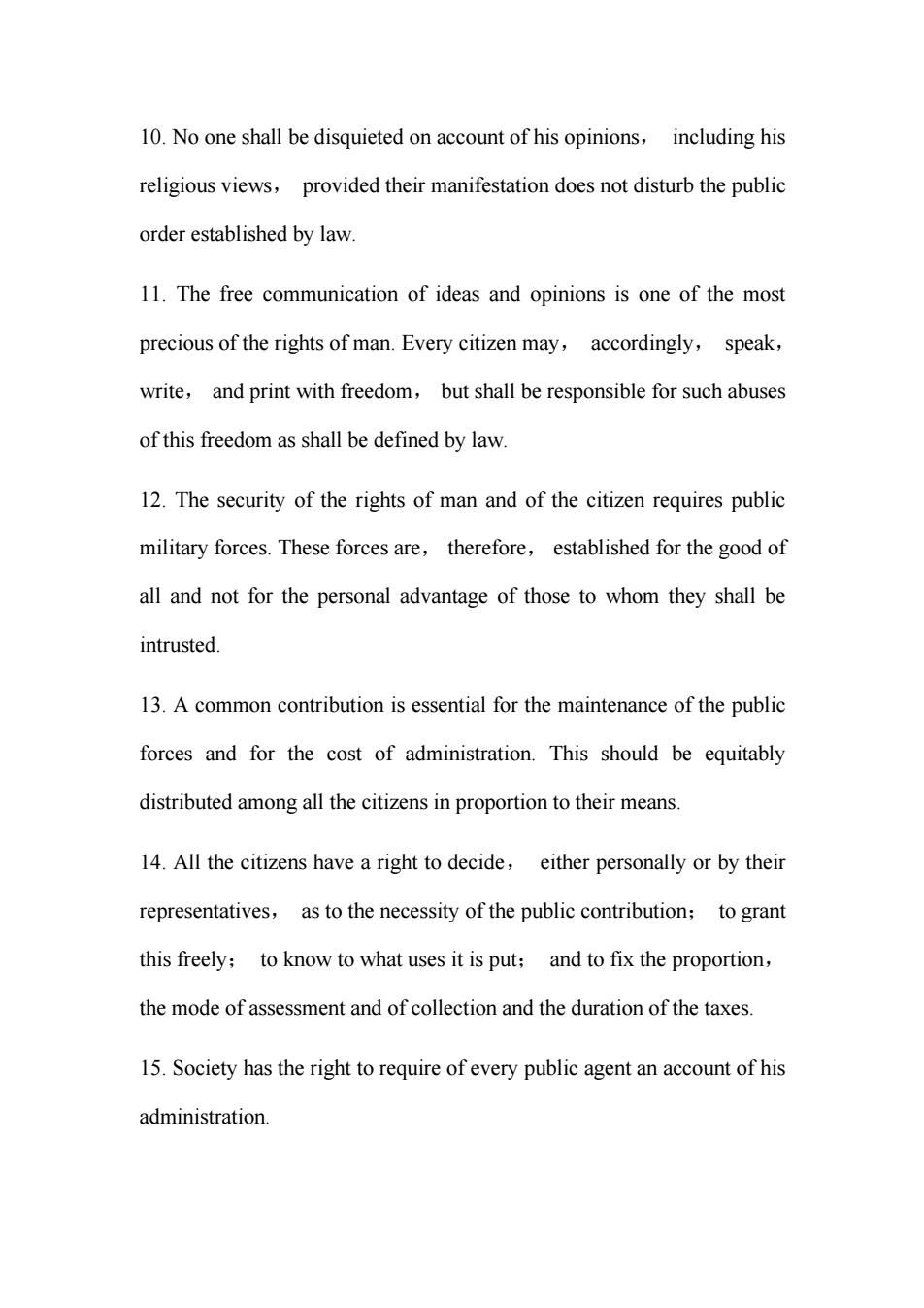正在加载图片...

10.No one shall be disquieted on account of his opinions,including his religious views,provided their manifestation does not disturb the public order established by law. 11.The free communication of ideas and opinions is one of the most precious of the rights of man.Every citizen may,accordingly,speak, write,and print with freedom,but shall be responsible for such abuses of this freedom as shall be defined by law. 12.The security of the rights of man and of the citizen requires public military forces.These forces are,therefore,established for the good of all and not for the personal advantage of those to whom they shall be intrusted. 13.A common contribution is essential for the maintenance of the public forces and for the cost of administration.This should be equitably distributed among all the citizens in proportion to their means. 14.All the citizens have a right to decide,either personally or by their representatives,as to the necessity of the public contribution;to grant this freely;to know to what uses it is put;and to fix the proportion, the mode of assessment and of collection and the duration of the taxes. 15.Society has the right to require of every public agent an account of his administration10. No one shall be disquieted on account of his opinions, including his religious views, provided their manifestation does not disturb the public order established by law. 11. The free communication of ideas and opinions is one of the most precious of the rights of man. Every citizen may, accordingly, speak, write, and print with freedom, but shall be responsible for such abuses of this freedom as shall be defined by law. 12. The security of the rights of man and of the citizen requires public military forces. These forces are, therefore, established for the good of all and not for the personal advantage of those to whom they shall be intrusted. 13. A common contribution is essential for the maintenance of the public forces and for the cost of administration. This should be equitably distributed among all the citizens in proportion to their means. 14. All the citizens have a right to decide, either personally or by their representatives, as to the necessity of the public contribution; to grant this freely; to know to what uses it is put; and to fix the proportion, the mode of assessment and of collection and the duration of the taxes. 15. Society has the right to require of every public agent an account of his administration